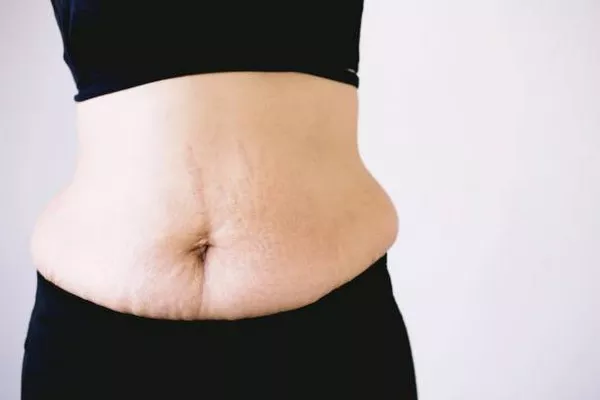Losing weight after a C-section can be a different journey for every mother. It requires patience, dedication, and a balanced approach to ensure both mother and baby remain healthy. This article provides a comprehensive guide to understanding how long it might take to lose weight after a C-section and offers practical tips for achieving your weight loss goals.
Understanding Postpartum Weight Loss
Postpartum weight loss can vary significantly from one person to another. Several factors influence this process, including genetics, diet, exercise, and overall health. It’s essential to approach weight loss gradually and healthily, especially after a C-section, to avoid complications.
Factors Affecting Postpartum Weight Loss
Initial Weight Gain: The amount of weight gained during pregnancy affects how quickly you can lose it postpartum. Women who gain more weight during pregnancy may take longer to shed those extra pounds.
Diet and Nutrition: A balanced diet rich in nutrients is crucial for weight loss and overall health. Proper nutrition also supports breastfeeding and recovery from surgery.
Physical Activity: Exercise is vital for weight loss, but it’s important to start slowly, especially after a C-section. Consult your doctor before beginning any exercise regimen.
Breastfeeding: Breastfeeding can help with weight loss as it burns extra calories. However, it may not be the sole solution for everyone.
Sleep and Stress: Lack of sleep and high stress levels can hinder weight loss efforts. Finding ways to manage stress and get adequate rest is crucial.
Immediate Postpartum Phase
The first six weeks after a C-section are primarily about recovery. Your body needs time to heal from surgery, and your primary focus should be on rest, nutrition, and bonding with your baby.
The Role of Rest and Recovery
Rest Is Essential: Your body has undergone major surgery. Adequate rest helps in recovery and sets the foundation for future weight loss efforts.
Nutrition for Recovery: A balanced diet rich in vitamins, minerals, and protein aids in healing. Avoid crash diets or excessive calorie restriction during this period.
Initial Weight Loss
Natural Weight Loss: In the first few weeks, you’ll naturally lose weight due to the loss of fluids, the baby’s weight, and other pregnancy-related factors.
Breastfeeding Benefits: Breastfeeding can help burn additional calories, aiding initial weight loss.
Starting Physical Activity
After getting the green light from your doctor, you can gradually incorporate physical activity into your routine.
Safe Exercises Post-C-Section
Walking: Start with short, gentle walks and gradually increase the duration as you feel comfortable.
Pelvic Floor Exercises: These exercises strengthen the muscles affected by pregnancy and childbirth.
Gentle Yoga and Stretching: Helps improve flexibility and reduces stress.
Building a Routine
Set Realistic Goals: Start with small, achievable goals to stay motivated.
Consistency Is Key: Regular physical activity, even in small amounts, can lead to significant long-term results.
Listen to Your Body: Avoid any activity that causes pain or discomfort.
Nutrition for Postpartum Weight Loss
A balanced diet is crucial for losing weight and maintaining energy levels.
Essential Nutrients
Protein: Helps in muscle repair and keeps you full longer.
Fiber: Aids digestion and helps maintain a healthy weight.
Healthy Fats: Essential for overall health and can help you feel satiated.
Meal Planning
Balanced Meals: Ensure each meal includes protein, healthy fats, and fiber.
Hydration: Drink plenty of water to stay hydrated and support metabolism.
Avoid Processed Foods: Limit intake of sugary snacks, fast food, and processed items.
Breastfeeding and Weight Loss
Breastfeeding has multiple benefits, including aiding in postpartum weight loss.
Caloric Needs
Increased Caloric Demand: Breastfeeding burns extra calories, but it’s essential to balance this with nutrient intake.
Healthy Eating: Focus on nutrient-dense foods to support milk production and weight loss.
Breastfeeding Challenges
Hunger and Cravings: Breastfeeding can increase hunger. Opt for healthy snacks to manage cravings.
Hydration: Stay well-hydrated, as breastfeeding can make you thirsty.
See Also: How Much Weight Do You Lose Breastfeeding
Managing Stress and Sleep
Stress and lack of sleep can impede weight loss efforts.
Stress Management
Mindfulness and Relaxation Techniques: Practices like meditation, deep breathing, and yoga can reduce stress.
Support System: Lean on family and friends for support. Joining postpartum groups can also be beneficial.
Improving Sleep Quality
Sleep When the Baby Sleeps: Try to rest when your baby is sleeping to accumulate more rest.
Create a Relaxing Bedtime Routine: A consistent routine can improve sleep quality.
Setting Realistic Expectations
Losing weight after a C-section is a gradual process. Setting realistic expectations can help maintain motivation and avoid frustration.
Timeline for Weight Loss
6 Weeks to 3 Months: Initial weight loss due to fluid loss and natural postpartum changes.
3 to 6 Months: Gradual weight loss as you incorporate exercise and healthy eating habits.
6 to 12 Months: Continued weight loss and toning as your body adjusts to postpartum life.
Patience and Persistence
Celebrate Small Wins: Recognize and celebrate small milestones along your weight loss journey.
Be Kind to Yourself: Understand that every body is different. Avoid comparing your progress to others.
Professional Support
Seeking professional support can enhance your postpartum weight loss journey.
Consulting Healthcare Providers
Regular Check-Ups: Regular consultations with your doctor to monitor health and progress.
Dietitians and Nutritionists: Professional advice on creating a balanced diet plan.
Fitness Trainers
Postpartum Fitness Specialists: Trainers who specialize in postpartum fitness can provide tailored exercise plans.
Personalized Exercise Programs: Customized plans that consider your unique needs and recovery status.
Conclusion
Losing weight after a C-section is a journey that requires patience, dedication, and a balanced approach. By focusing on recovery, gradually incorporating physical activity, maintaining a balanced diet, and managing stress and sleep, you can achieve your weight loss goals healthily and sustainably. Remember to set realistic expectations, celebrate small milestones, and seek professional support when needed. Your health and well-being are paramount, and with time, persistence, and self-care, you can successfully navigate your postpartum weight loss journey.


